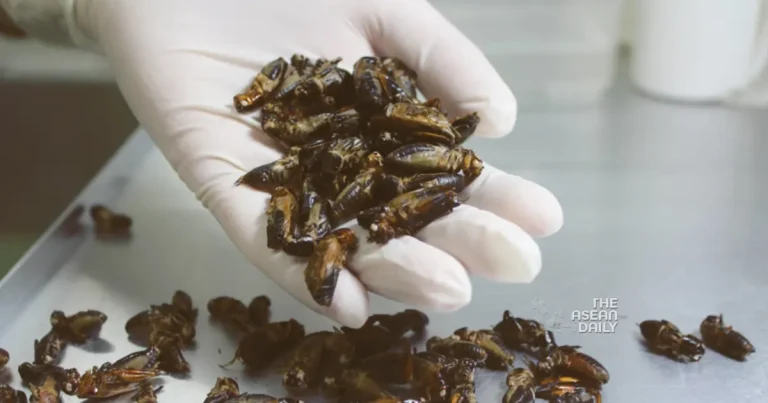9-3-2024 (HANOI) In a daring move that could redefine the culinary landscape of Singapore, a Vietnamese startup that farms crickets for food is setting its sights on the island nation. Cricket One, a trailblazing snack manufacturer, is poised to become the first company to introduce insect-based food products to Singaporean consumers, riding the wave of interest in alternative protein sources.
Singapore, renowned for its strict regulations, aims to finalize guidelines by July to permit the mass consumption of insect-based foods. This development aligns with the global explosion of interest in alternative protein sources, including lab-cultivated “no-kill” meat and plant-based alternatives, driven by concerns over nutrition, environmental impact, and food security.
Cricket One, which recently secured European approval for an insect powder used in pasta and bread, believes that the options for insect-based foods have never been more exciting. Their powder can be incorporated into an array of dishes, from pizza and cake to soup and malt drinks. However, their planned expansion to Singapore will initially focus on coated crickets and cricket chips, a crunchy snack reminiscent of pork rinds or shrimp chips.
While some critics in the West have dismissed the alternative protein industry as an environmental “agenda” aimed at depriving people of their beloved burgers, the truth is that humans have a long history of consuming insects. Scholars argue that the taboos surrounding insect consumption are deeply rooted in colonial rule.
“I feel way more optimistic with the market right now,” said Bicky Nguyen, co-founder of Cricket One, whose backers include venture capital fund 500 Global (formerly 500 Startups) and Singaporean investors like Robert Alexander Stone. In an interview, Nguyen expressed confidence that producers of insect-based foods have improved over the years, specializing and inventing a variety of “delicious” offerings beyond protein bars.
“A lot of companies pay more attention to the sensory profile of the consumer,” she said. “If the product doesn’t taste good, the consumer will not come back.”
Advocates of insect consumption tout their high protein content and low environmental cost in terms of land, fuel, and water usage. According to the journal Food Science of Animal Resources, protein comprises up to 60% of edible insects, while the Animal Frontiers journal reports that insect farming emits at least 72% less greenhouse gas than the meat industry.
While the Singapore Food Agency has yet to confirm the review of Cricket One’s market entry application, the regulator has stated that it will introduce rules in the first half of 2024. The Vietnamese agricultural technology startup anticipates that the regulations will be ready for its planned March launch. However, Singaporean companies, from farms to restaurants, have expressed frustration over the delayed rules, initially expected in 2023, and fear potential business closures, as reported by the Straits Times.
Cricket One, which currently sells snacks across Vietnam and inputs for animal feed and pet food globally, views the strictly regulated city-state as a “stepping stone” before expanding into Malaysia, Indonesia, and potentially Japan and China. While plant-based diets continue to gain popularity, Singapore captured global attention in 2020 as the first country to approve cultivated meat.
“As the insect industry is nascent” in Singapore, a food agency spokesperson said “regulatory levers before insects are approved as food to safeguard food safety” are needed, and “more time is needed to establish the required regulations and implementation plan.” The spokesperson acknowledged the “greater commercial interest” in insect farming nowadays.
In 2023, Brussels granted Cricket One a five-year monopoly to sell its proprietary insect powder in the European Union, prompting criticism from some quarters that it is foisting unfamiliar products on consumers. However, researcher Julie Lesnik argued that colonizers pushed the idea of insect aversion to distinguish themselves from native people, stating, “These ideas have persisted because of the perpetuation of European imperial attitudes.”
As these attitudes fade, proponents like Nguyen see alternative protein as a bridge for people to cut back on conventional meat, if not eliminate it altogether. Based in Ho Chi Minh City, she acknowledged that while Cricket One’s wholesale arm is profitable, she remains uncertain about the retail side’s path to profitability.




